Is Your Dog Twitching in Their Sleep - Here's What it Means
13.04.2021.
Dog owners are fascinated by their dogs. Most of us love watching our dogs do different things, and since dogs really like sleeping, it is inevitable we will watch them sleep at some point. Dogs can sleep anywhere, and if you ever watched them sleep, you might notice your dog twitching.
Many dog owners wonder, “Why do dogs twitch during sleep?” It is a legitimate concern about the dog’s wellbeing. However, most of the time, a dog twitching in their sleep is nothing to be worried about. Here is what you should know about dog twitching.
Why do dogs twitch during sleeping?
Scientists and vets seem to share our interest in learning more about the dog’s sleeping cycle. They have been extensively studying dog sleeping patterns and habits for quite some time. They came to some interesting conclusions about our furry best friends.
Dogs are not the only animals that twitch in their sleep. However, the closest animal to humans is dogs. We simply have the biggest chance of observing dogs when they are sleeping. There are several theories about why dogs are twitching in their sleep, and the most probable one is this;
Dogs, especially puppies, and seniors, twitch in their sleep because the pons and medulla (parts of the brain stem) send signals to the dog’s muscles to relax and not actually run or walk. The twitching happens if those parts are not working correctly (often with senior dogs) or are underdeveloped (often with puppies). Sometimes, these signals get mixed up, and the dog’s muscles start reacting to the things happening in their brain. In most twitching cases, the dog is actually dreaming, and their body is simply reacting to their own perceived reality.
Do dogs dream?
Unfortunately, we cannot talk to our dogs and ask them whether they dream, so we have to focus on scientific data and brain scans. The most important study about animal dreams was done in 2001 when scientists from MIT studied lab rats and their brain wave patterns during sleep. Scientists discovered that lab rats had the same brain waves during sleep as the brain waves during running through the maze. In fact, the results were so precise that scientists could determine which part of the maze the rat was dreaming about.
When it comes to dog dreams, their sleep pattern and REM stage are similar to ours. About 20 minutes after they fall asleep, the first dreams start occurring. The dog’s breathing gets shallower, their eyes move behind their closed eyelids, and the dog twitches. If you want to know more about dogs dreaming, check out this article - Do dogs dream?
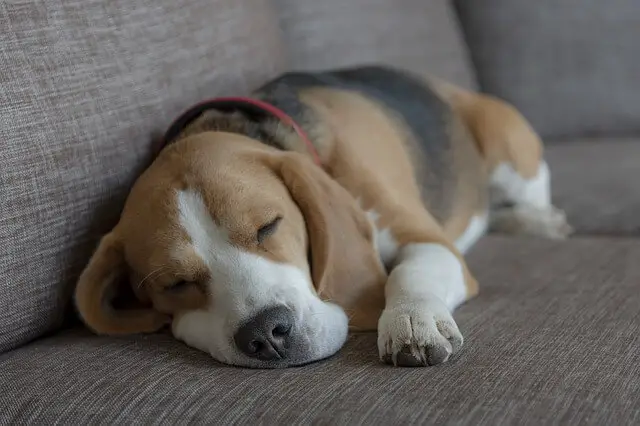
Can twitching be a reason for concern?
Most dog twitching cases in their sleep are benign, and there is no reason to worry about it. In fact, dogs are adorable when they twitch or silently whine when they are sleeping. If you notice your dog twitches every now and then, enjoy the cute scene and let them sleep in peace. The twitching will stop, and they will continue sleeping normally.
Unfortunately, there are some cases when you might legitimately get worried about your dog’s well-being. Their twitching can influence their sleeping quality, and just like humans, dogs can become narcoleptic. If your dog’s twitching is becoming worrisome, make sure you schedule a vet appointment and let your vet know about your concerns and your dog’s sleeping issues.
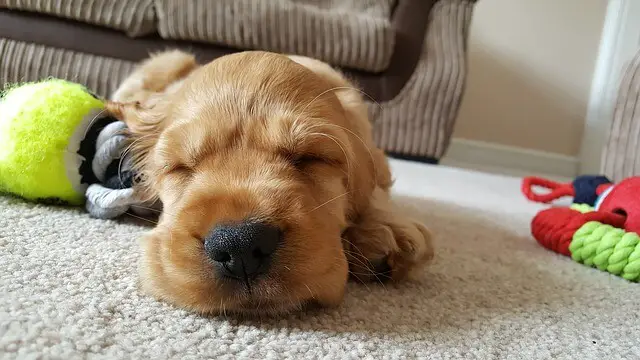
Can dogs have seizures during sleep?
One of the reasons dogs might twitch is if they have seizures. However, seizures can happen when the dog is awake. Nevertheless, seizure twitching and normal sleep twitching are two completely different types of twitching. You should keep a close eye on your dog if you suspect their twitching is excessive and it worries you. Here are some key differences between the two;
Normal sleep twitching
Normal dog sleep twitching is when your dog is sleeping on their side, and they start “paddling” their paws. The dog will typically be relaxed, and the control of the rest of their body should be intact. This is considered normal, and the main reason for such sleep twitches is dreaming.
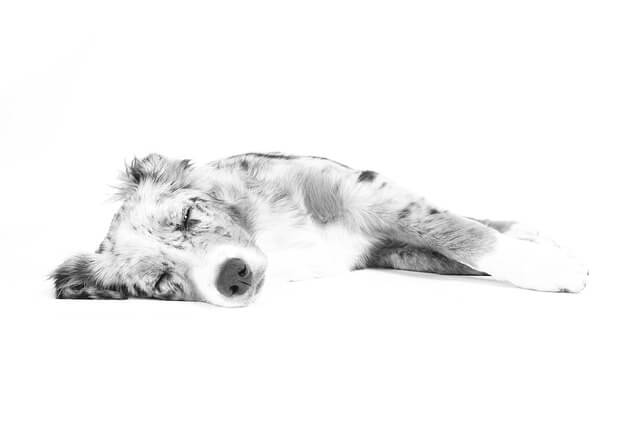
Seizure twitching
Seizure twitching is a lot different than normal sleep twitching. Dogs experiencing seizures will have stiff limbs, and the twitching will seem unnatural and almost wild. Dog experiencing a seizure might have foam or vomit come out of their mouth, and they might lose control over their bowels and urinary tract. It is impossible to wake the dog up from such twitching. Make sure you keep an eye on your dog, and when they finally wake up from a seizure, the dog will be disoriented, confused, and dazed. This is typical post-seizure behavior.
If you want to know more about twitching because of seizures, check out this article - Seizures in dogs.
Are there other reasons dogs might twitch?
There are some other reasons a dog might twitch during sleep or when they are awake. One of those reasons is tick paralysis. This disease is carried by certain kinds of female ticks and can cause your dog to involuntary twitch. The reason for this type of dog twitching is that the paralysis-causing toxins are spreading through the dog’s body. If you notice your dog suddenly started twitching, make sure they don’t have any tick bites.
Another possible reason your dog might twitch in their sleep is that they are experiencing an electrolyte imbalance due to malnutrition. Just like humans, dogs need balanced diets to remain healthy, and failing to provide them with one can result in neuromuscular problems. One of the symptoms of these health issues is twitching.
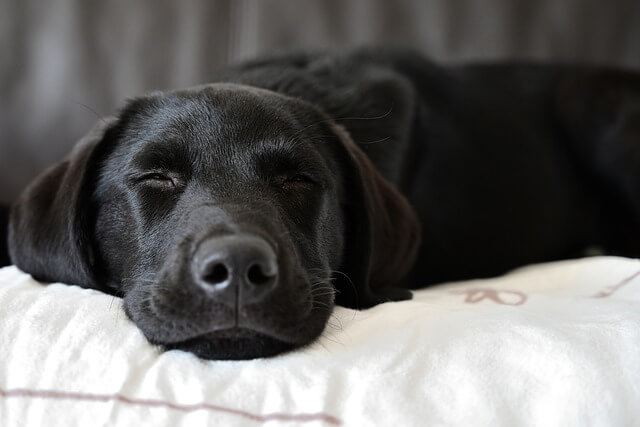
How to improve my dog’s sleep?
Every dog is unique, and finding the right way how to improve your dog's sleep can be tricky and challenging. However, there are a few things you can do that will, in most cases, do the job and ensure that your dog starts to sleep better
1. Establish a routine
Setting a regular bedtime and wake-up time for dogs can help regulate their inner clock and sleep better. This will ensure that they fall asleep more quickly and wake up more refreshed
2. Create a comfortable sleep environment
Provide your dog with a comfortable, clean, and quiet sleeping area, and Their bed should be in an appropriate size that will properly support your dog's weight.
3. Regular exercise
Regular physical activity will help tire your dog and make it easier for him to fall asleep. Dogs that regularly exercise tend to sleep better and have better overall health.
4. Limit disturbances
You should minimize loud noises, bright lights, and other distractions during your dog's sleep time.
5. Ensure a balanced diet
Ensuring a balanced dog diet will provide better overall health for your dog, which will for sure affect their sleeping schedule and ensure that they sleep better.
6. Control stress and anxiety
Anxiety and stress can interfere with your dog's sleeping schedule. If you suspect that your dog is anxious or stressed, you should talk with your vet to solve this health issue.
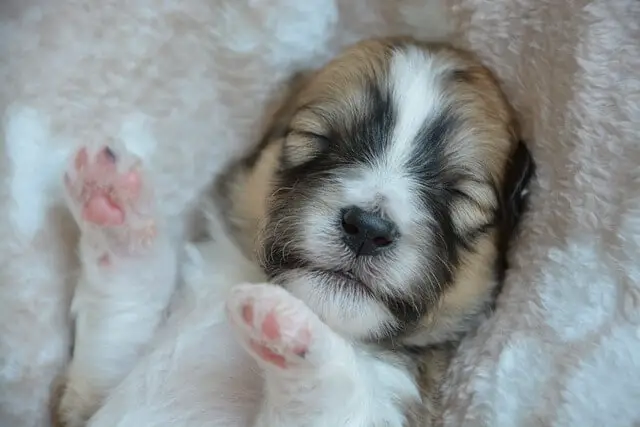
Do dogs twitch while they're awake?
Some dogs could have a habit of twitching even when they are awake. This can happen due to muscle strain, fatigue, or even a response to an itch. However, if you notice your dog twitching regularly while he is awake, you should consult with your vet since this could indicate certain health issues that must be addressed.
When should you call the vet?
Usually, twitching is nothing concerning, but in some cases, you should search for help. These are the situations where you should contact your vet for advice.
- If the twitching is accompanied by certain symptoms such as vomiting, diarrhea, or disorientation
- if the twitching frequently occurs without any reason
- if the twitching is causing your dog pain or discomfort
- if the twitching is accompanied by episodes of unconsciousness or seizures.
In conclusion
If you notice your dog twitching in their sleep, it is nothing to worry about in most cases. Your dog is probably dreaming about running after a squirrel or playing in the park, and their body is simply reacting to the stimulus in its brain. If the twitching becomes excessive and starts worrying you, call your vet and ask for a check-up. It is a good idea to do complete bloodwork every once in a while to ensure your dog gets a balanced diet and no missing nutrients in their body.
World Dog Finder team

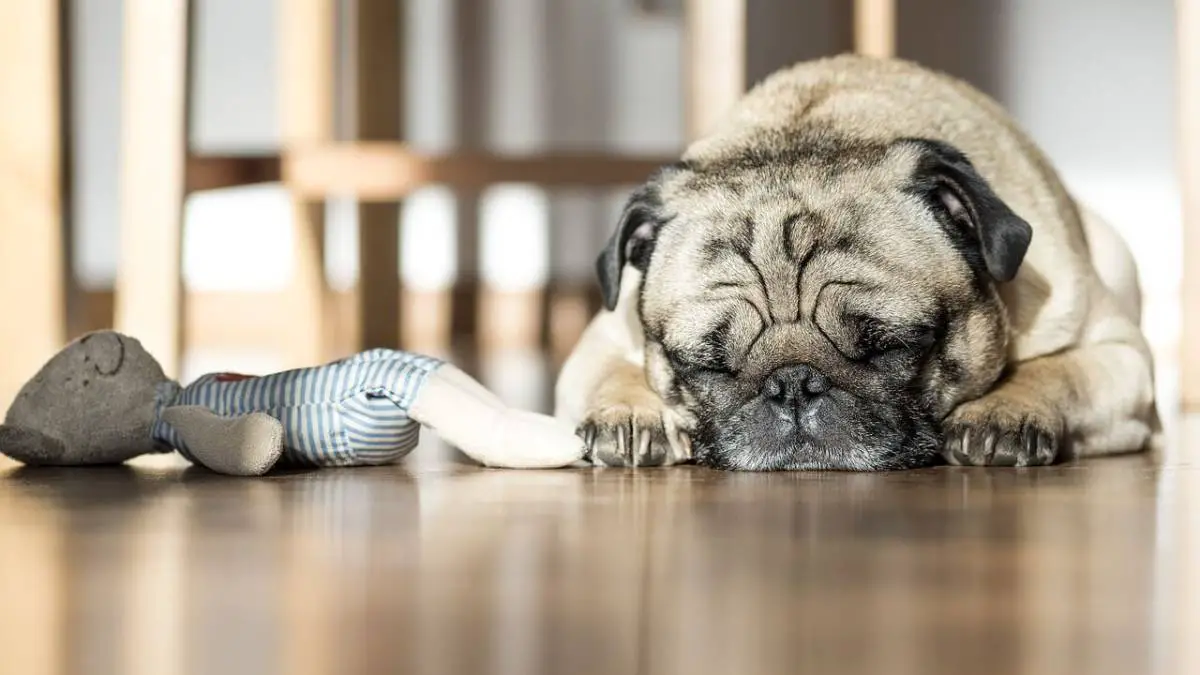
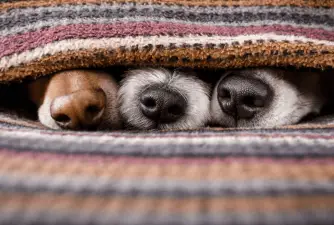
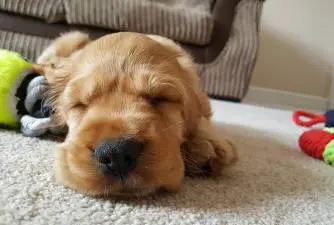
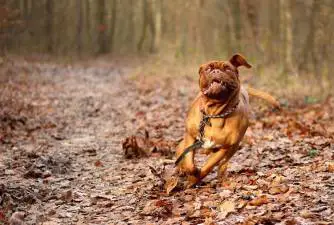


Share